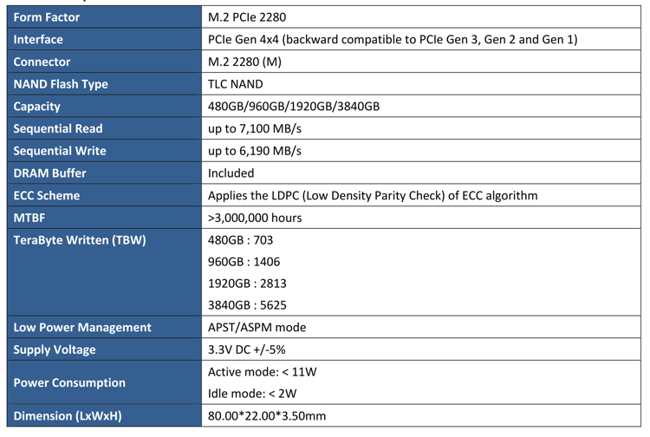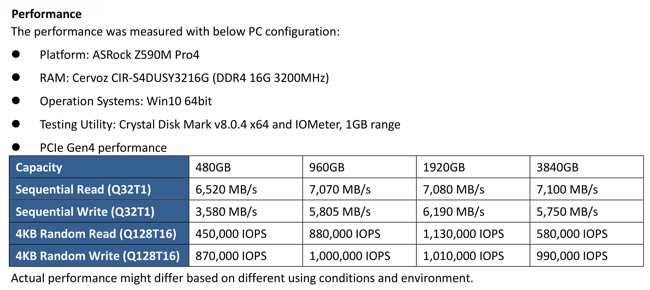Cervoz T441 NVMe PCIe Gen 4×4 M.2 Up to 3,840GB Industrial-Grade SSDs
Up to 7,100/6,190MB/s RW speeds, and up to 1,000,000 4K random IO/s
This is a Press Release edited by StorageNewsletter.com on April 10, 2023 at 2:02 pmCervoz Technology Co., Ltd. introduces the industrial-grade T441 NVMe PCIe Gen 4×4 SSDs, boasting performance.

Designed to address the growing automation trend in the industry, the T441 is a choice for companies seeking technology in quality storage solutions.
The T441 SSDs leverage the power of 112-layer 3D TLC NAND flash technology, offering storage capacities of up to 3,840GB in a compact and energy-efficient design. In addition, the PCIe Gen 4×4 interface enables faster and more efficient data access, with RW speeds of up to 7,100/6,190 MB/s and 4K random IO/s of up to 1,000,000. This performance makes the T441 a solution for applications requiring real-time processing of vast data, such as surveillance, machine vision, and edge AI, as well as those handling massive data sets like CAD, biomedical engineering, and atmospheric sciences.
Heat dissipation for performance
The T441 family incorporates a hardware-software integrated heat dissipation design, ensuring performance and durability. This design includes a dynamic thermal throttling mechanism that monitors and regulates operating temperatures within a standard range of 0°C to 70°C. Additionally, the T441 is outfitted with an aluminum heatsink, reducing the operating temperature by 15°C to 20°C and allowing the SSDs to maintain optimal performance. This heat dissipation design results in quality and heat dissipation of up to 25%, making the T441 a reliable and efficient choice for high-performance storage solutions.
Durability, reliability, and data security
Expertly engineered with features such as SLC write cache, DRAM buffer, and wear leveling technologies, the T441 delivers durability and longevity in storage solutions. DRAM buffer technology is the integration of a DRAM chip in T441 storage modules that serves as a cache for hard disks, acting as a directory and collecting small amounts of data before directly storing it into the flash memory. This process minimizes the wear on the limited RW cycles of SSDs, resulting in enhanced performance and endurance. Consequently, the T441 is for applications requiring intensive writing of numerous small files.
The company incorporates a ECC algorithm known as Low-Density Parity Check (LDPC) decoding in the firmware to optimize data reliability. In an era where the IoT places a premium on security and reliability of data, the T441 is designed with End-to-End Data Protection as well as S.M.A.R.T. and TRIM technologies. These enhancements contribute to safeguarding data integrity and security, making this SSD for storage and memory module solutions.
















 Subscribe to our free daily newsletter
Subscribe to our free daily newsletter


